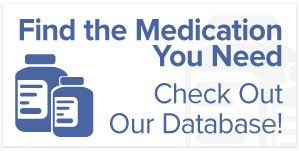Asthma is a chronic respiratory condition affecting millions of individuals around the world. It is characterized by inflammation and constriction of the airways, leading to symptoms such as wheezing, shortness of breath, coughing, and chest tightness.
While asthma cannot be cured, it can be effectively managed and treated to minimize symptoms and improve the quality of life for individuals with this condition. Read on as we explore ways to manage and treat asthma.
1. Create an Asthma Action Plan
The first step to effectively managing asthma is asthma management, which begins with an individualized action plan developed in consultation with a healthcare professional. This plan outlines daily medications, triggers to avoid, and steps to take in case of an asthma attack. Following the action plan diligently helps individuals stay proactive and maintain control over their asthma.
2. Medications for Asthma Treatment
There are two main types of medications used in asthma treatment: controller medications and reliever medications. Controller medications like inhaled corticosteroids help reduce airway inflammation and prevent asthma symptoms.
On the other hand, reliever medications, such as short-acting bronchodilators, provide immediate relief during an asthma attack. Nevertheless, it is crucial to take medications as prescribed by the doctor to effectively manage asthma symptoms.

3. Identify and Avoid Triggers
Many asthma symptoms can be triggered by certain allergens or irritants. Some of the most common asthma triggers include dust mites, pollen, pet dander, tobacco smoke, and air pollution. Identifying and avoiding these triggers can significantly reduce the frequency and severity of asthma symptoms.
For example, keeping the living environment clean, using allergen-proof bedding, and avoiding exposure to smoke are essential steps in managing asthma triggers, leading to a healthy lifestyle.
4. Regular Exercise and Physical Activity
Regular exercise is beneficial for individuals with asthma as it strengthens the respiratory muscles and improves overall lung function. Engaging in activities like swimming, walking, or cycling can help manage asthma symptoms. However, it is important to warm up before exercise and use appropriate medication as prescribed by the doctor to prevent exercise-induced asthma attacks.
5. Maintain a Healthy Lifestyle
Maintaining a healthy lifestyle can have a positive impact on asthma management. A balanced diet rich in fruits, vegetables, and omega-3 fatty acids helps reduce inflammation. Additionally, maintaining a healthy weight and managing stress levels can also contribute to better asthma control.
6. Breathing Techniques and Lung Exercises
Various breathing techniques, such as pursed-lip breathing and diaphragmatic breathing, can help individuals with asthma improve their breathing efficiency and reduce symptoms. These techniques focus on slowing down breathing, promoting relaxation, and reducing shortness of breath.
Lung exercises, like peak flow monitoring and spirometry, can also help individuals monitor their lung function and detect any changes early on rather than spending on expensive asthma treatment.
When it comes to ways to manage and treat asthma, it requires a comprehensive approach that includes medication, trigger avoidance, lifestyle modifications, and regular monitoring.
By creating an asthma action plan, taking prescribed medications, identifying and avoiding triggers, engaging in exercise, maintaining a healthy lifestyle, and practicing breathing techniques, you can effectively control your asthma symptoms and lead fulfilling lives.
If you need assistance obtaining prescription medications, The RX Helper can help. We specialize in patient Prescription Assistance Programs that provide medications at little to no cost for those without coverage. Contact us today to find the assistance program that suits your needs.



